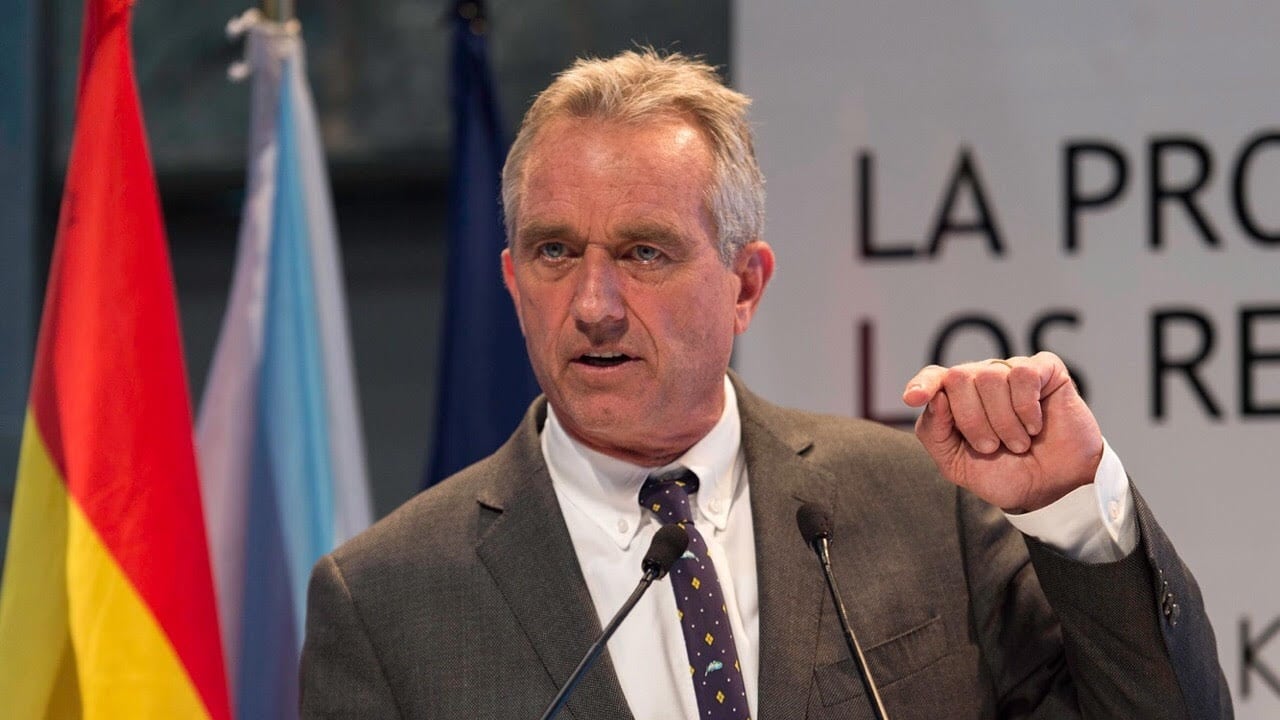Robert F. Kennedy Jr. announced a shift from the Democratic primary to an independent run for the presidency on Monday, setting the stage for a significant shift in the 2024 race. This move comes after Kennedy’s calls for a debate with President Joe Biden were left unanswered, and Biden maintained a 50-point lead in primary polling.
Although Kennedy’s bid for the Democratic nomination seemed marginal, his role as an independent candidate could alter the general election’s outcome significantly.
Polling Potential
Recent polling on an independent run by Kennedy indicates he could become one of the strongest third-party or independent candidates this century. A Reuters/Ipsos poll showed Kennedy at 14 percent in a hypothetical November 2024 matchup, with former President Donald Trump at 40 percent and Biden at 38 percent.
Historically, Kennedy’s 14 percent is an anomaly. Previous third-party or independent candidates never achieved this level of support since Ross Perot in 1996. However, it’s important to note that third-party or independent candidates usually experience a decline in support as elections draw closer.
The Ipsos poll suggests Kennedy could receive 12 percent of the Republican vote and 9 percent of the Democratic vote, indicating a slightly more beneficial impact for Biden in a tight race. However, Kennedy’s presence on the ballot could tilt the scales in favor of the Republicans.
As the 2024 race between Biden and Trump remains highly competitive, neither side seems willing to risk a Kennedy candidacy potentially affecting the vote in a crucial election that will unfold over the next 13 months.
It remains unclear whether Kennedy’s candidacy will draw more votes from Biden or Trump. While his favorability ratings are higher among Republicans, Kennedy has a substantial following among Democrats as well. This division could potentially influence a very close election.
But while polling may be better than expected now, not everyone buys the claim that Kennedy’s candidacy is a serious one.
“There is no universe where RFK Jr. is going to get double digits in an election,” explained Andrew Donaldson, a political commentator and columnist for The Fayette Tribune newspaper in West Virginia.
“The casual voters aren’t even paying attention yet, and many of them still don’t believe it is going to be Trump v Biden until the primaries make it so. What voters RFK Jr does pull away will be from Trump, not Biden,” he told 19FortyFive on Wednesday.
Could An Independent Win?
While it’s technically possible for an independent candidate to win a U.S. presidential election, it is important to acknowledge the considerable challenges they face within the current U.S. political system. The two major political parties, Democrats and Republicans, have a significant advantage in terms of funding, organization, and established support networks.
Major parties have extensive funding, resources, and well-established networks that independents often lack. Running a nationwide campaign is financially demanding.
Each state has its own rules for getting on the ballot, and these rules can be quite restrictive for independent candidates. The amount of petition signatures required, deadlines, and other requirements can be formidable.
Independent candidates may find it challenging to participate in nationally televised debates and forums, which are crucial for reaching a broad audience and influencing voters.
Many voters also feel a strong party affiliation and may be reluctant to vote for a candidate outside of the two major parties due to concerns about “wasting” their vote or fear that their preferred major party candidate might lose.
However, public opinion and political landscapes can change, and unforeseen circumstances can impact elections. If a charismatic and well-funded independent candidate were to emerge with broad appeal, they could potentially disrupt the traditional two-party dynamic and gain traction with voters. Nonetheless, overcoming the existing challenges would still be a significant feat.
Georgia Gilholy is a journalist based in the United Kingdom who has been published in Newsweek, The Times of Israel, and the Spectator. Gilholy writes about international politics, culture, and education.

